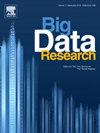Complex data in tourism analysis: A stochastic approach to price competition
IF 4.2
3区 计算机科学
Q2 COMPUTER SCIENCE, ARTIFICIAL INTELLIGENCE
引用次数: 0
Abstract
This study examines pricing strategies and decision-making processes in the hospitality industry by analyzing “ask” prices on online travel agencies (i.e., the rates at which hoteliers are willing to sell their rooms). We face the challenge of modeling a continuous flow of big data organized as “time series of time series,” where daily seasonality and advance bookings intersect. Our research combines insights from tourism, quantitative methods, and big data to improve pricing strategies, contributing to both theory and practice in revenue management. Focusing on Venice, we analyze price competition as a multivariate stochastic process using a Structural Vector Autoregressive (SVAR) approach, aligning with modern dynamic pricing algorithms.
The findings show that time-based pricing strategies, which adjust based on the day of arrival and booking, are more important than room features in setting hotel prices. We also find that price changes have a non-linear and decreasing effect as the booking date approaches. These insights suggest that hotels could create more advanced pricing strategies, and policymakers should consider these factors when addressing the challenges related to overtourism.
We study the complex competitive relationships among heterogeneous service providers with an approach applicable to any market where consumption is delayed relative to purchase time. However, we highlight that the quality and accessibility of information in the tourism sector are key aspects to be considered when using big data in this industry.
旅游分析中的复杂数据:价格竞争的随机方法
本研究通过分析在线旅行社的“询问”价格(即酒店经营者愿意出售客房的价格),考察了酒店行业的定价策略和决策过程。我们面临的挑战是如何对连续的大数据流进行建模,这些数据被组织为“时间序列的时间序列”,其中每日季节性和提前预订交织在一起。我们的研究结合了旅游业、定量方法和大数据的见解,以改进定价策略,为收入管理的理论和实践做出贡献。以威尼斯为例,我们使用结构向量自回归(SVAR)方法分析价格竞争作为一个多元随机过程,与现代动态定价算法保持一致。研究结果显示,在制定酒店价格时,基于时间的定价策略(根据抵达日期和预订情况进行调整)比客房特征更重要。我们还发现,随着预订日期的临近,价格变化具有非线性和递减效应。这些见解表明,酒店可以制定更先进的定价策略,政策制定者在应对与过度旅游相关的挑战时应该考虑这些因素。我们用一种适用于任何消费相对于购买时间延迟的市场的方法研究了异构服务提供商之间复杂的竞争关系。然而,我们强调,在旅游业中使用大数据时,信息的质量和可及性是需要考虑的关键方面。
本文章由计算机程序翻译,如有差异,请以英文原文为准。
求助全文
约1分钟内获得全文
求助全文
来源期刊

Big Data Research
Computer Science-Computer Science Applications
CiteScore
8.40
自引率
3.00%
发文量
0
期刊介绍:
The journal aims to promote and communicate advances in big data research by providing a fast and high quality forum for researchers, practitioners and policy makers from the very many different communities working on, and with, this topic.
The journal will accept papers on foundational aspects in dealing with big data, as well as papers on specific Platforms and Technologies used to deal with big data. To promote Data Science and interdisciplinary collaboration between fields, and to showcase the benefits of data driven research, papers demonstrating applications of big data in domains as diverse as Geoscience, Social Web, Finance, e-Commerce, Health Care, Environment and Climate, Physics and Astronomy, Chemistry, life sciences and drug discovery, digital libraries and scientific publications, security and government will also be considered. Occasionally the journal may publish whitepapers on policies, standards and best practices.
 求助内容:
求助内容: 应助结果提醒方式:
应助结果提醒方式:


